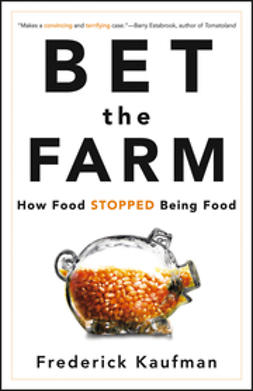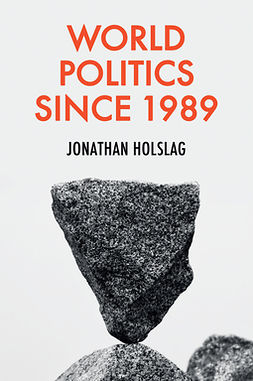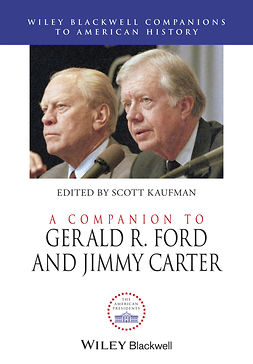Kaufman, Frederick
Bet the Farm: How Food Stopped Being Food
In 2008, farmers grew enough to feed twice the world's population, yet more people starved than ever before—and most of them were farmers. In Bet the Farm, food writer Kaufman sets out to discover the connection between the global food system and why the food on our tables is getting less healthy and less delicious even as the the world's biggest food companies and food scientists say things are better than ever. To unravel this riddle, he moves down the supply chain like a detective solving a mystery, revealing a force at work that is larger than Monsanto, McDonalds or any of the other commonly cited culprits—and far more shocking.
Kaufman's recent cover story for Harper's, "The Food Bubble," provoked controversy throughout the food world, and led to appearances on the NBC Nightly News, MSNBC, Fox Business News, Democracy Now, and Bloomberg TV, along with features on National Public Radio and the BBC World Service.
- Visits the front lines of the food supply system and food politics as Kaufman visits farms, food science research labs, agribusiness giants, the United Nations, the Chicago Mercantile Exchange, and more
- Explains how food has been financialized and the powerful consequences of this change, including: the Arab Spring, started over rising food prices; farmers being put out of business; food scientists rushing to make easy-to-transport, homogenized ingredients instead of delicious foods
- Explains how the push for sustainability in food production is more likely to make everything worse, rather than better—and how the rise of fast food is bad for us, but catastrophic for those who will never even see a McNugget or frozen pizza
Keywords: US History, global food supply, world food supply, global food supply chain, world food supply chain, food crisis, global food crisis, food production, sustainable food production, food producers, agribusiness, agritechnology, agri-technology, agri-tech, agritech, food movement, farming, world farming, global farming, industrial farms, industrial farming, small farms, family farms, agriculture, world agriculture, global agriculture, food and agriculture, food industrial complex, environmental movement, organic food movement, local food movement, slow food movement, edible movement, good food movement, and world peasant movement, genetically modified crops, genetically modified food, gmo, food security, food politics, politics of food, food activism, food technology, biodiversity, world hunger, hunger relief, starvation, food shortage, food shortages, food riots, food prices, world food prices, food bubbles, Tyson foods, Monsanto, domino&rsquo, s pizza, dominos pizza, dominoes pizza, world food program, fast food nation, eric schlosser, Michael pollan, in defense of food, omnivore&rsquo, s dilemma, what to eat, marion nestle, food inc, karl weber, mark bittman
- Author(s)
- Kaufman, Frederick
- Publisher
- John Wiley and Sons, Inc.
- Publication year
- 2012
- Language
- en
- Edition
- 1
- Page amount
- 272 pages
- Category
- History
- Format
- Ebook
- eISBN (ePUB)
- 9781118234594
- Printed ISBN
- 9780470631928








